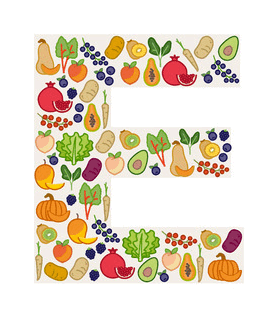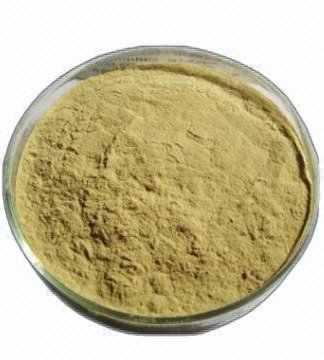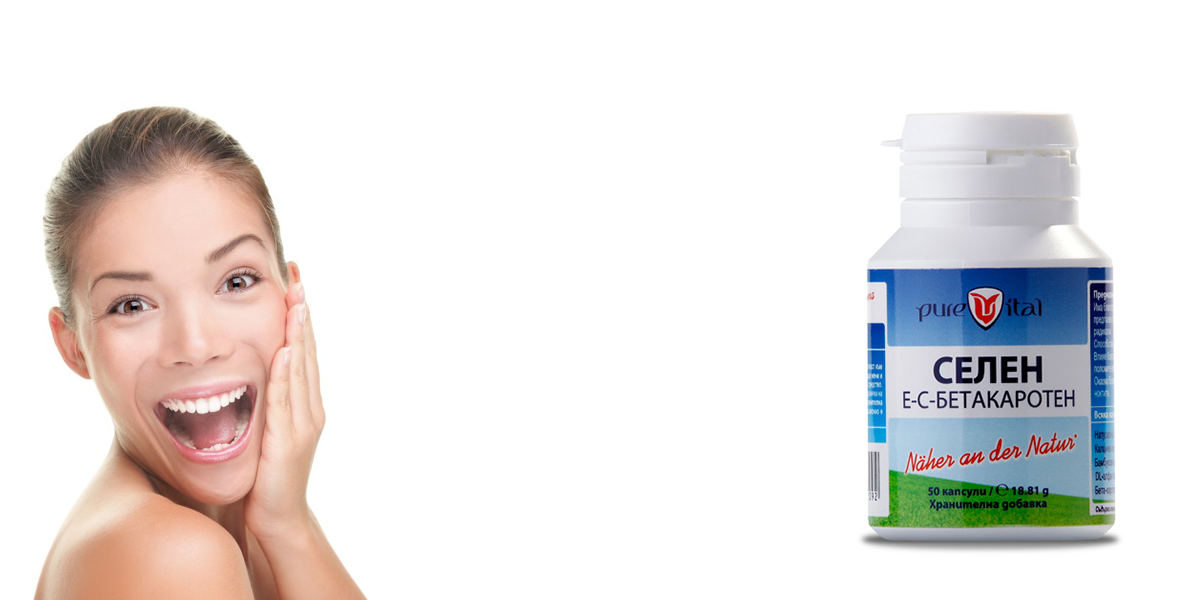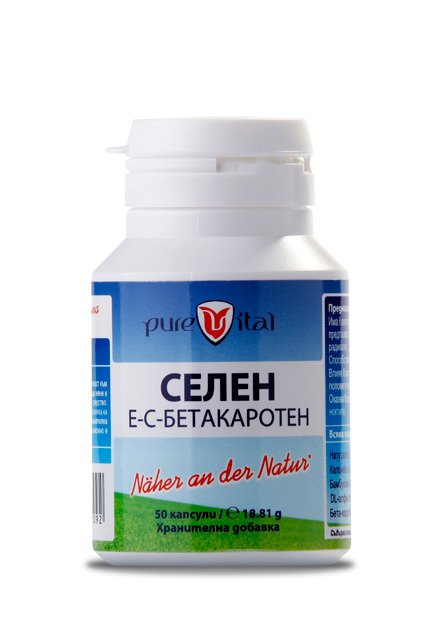The recommended daily dose contains:
- Vitamin C 82,500 mg
- Vitamin E (D-alpha-tocopheryl acetate) 6,710 mg
- Beta-Carotene (Vitamin A) 0,333 mg
- Selenium (from selenium yeast) 0,080 mg
Vitamin C
When it comes to colds, vitamin C is on everyone's lips - literally, because it provides valuable support for the immune system. Equally important is its effect as an antioxidant: vitamin C, just like vitamins A and E, neutralizes free radicals that can damage cells in our body. Vitamin C is involved in the production of endogenous collagen and controls the production of L-carnitine. It also plays an important role in the development of teeth, gums, muscles and bones, as well as in burning fat. Since vitamin C helps the absorption of iron, it has a beneficial effect on the oxygen content of the blood. Vitamin C deficiency can be manifested by frequent and prolonged infections and colds. Its absence affects our general well-being and our ability to work. Because of its central role in the formation of connective tissue, the lack of vitamin C also has a negative effect on the structure and health of the skin. Fresh fruits and vegetables with universal vitamin C should be present in our menu every day. The most famous suppliers of vitamin C are of course citrus fruits. Vitamin C, which is also known as ascorbic acid, greatly contributes to their fresh taste. The unsung heroes when it comes to vitamin C, however, are potatoes, which are also high in ascorbic acid. Both broccoli and peppers have more vitamin C than the classic orange. But a person cannot always carefully compose his daily menu. In addition, many people have an increased need for vitamin C, such as smokers or athletes, as well as people who are under daily stress. Dietary supplements can provide in these cases an adequate supply of vitamin C. Vitamin C lowers the pH of the urine and thus helps to reduce the bacteria in the urinary tract that are not resistant to acid. Vitamin C is important for biosynthesis and supports detoxification processes in the body. It is also involved in iron metabolism. Vitamin C also stimulates the production of norepinephrine and supports the conversion of fat into energy. With this, vitamin C is an active dietary supplement for burning fat. Some nutritionists recommend up to 1 gram of vitamin C per day at the start of a weight loss diet.
|
Vitamin E (D-alpha-tocopheryl acetate)
Vitamin E is best known as a fat-soluble "free radical scavenger." Just like vitamins A and C, it protects the body's cells against aggressive oxygen compounds and toxins in the environment. Vitamin E can thus delay premature aging and prevent cell damage leading to disease or even cell degeneration. Due to its protective effect, vitamin E, which in the language of chemistry is called D-alpha-tocopheryl acetate, is widely used in cosmetics. It also plays an important role in protein and fat metabolism. Vitamin E supports the functioning of the cardiovascular system in two ways. First, it helps reduce "bad" cholesterol, and thus has a positive effect on blood vessels. Second, it prevents red blood cells from sticking together and thus improves blood circulation. Since vitamin E also has an anti-inflammatory effect, it can help relieve rheumatic pain. Vitamin E is formed exclusively in plants and starts from there along the food chain. Signs of vitamin E deficiency are skin problems, muscle weakness, degeneration and a higher susceptibility to infections. Supplementing the daily diet with vitamin E can be conveniently and easily implemented through nutritional supplements.
|
Beta-Carotene (Vitamin A)
Beta-carotene (Vitamin A) is a powerful antioxidant. It is important for the eyes and as a component of the visual pigment rhodopsin is responsible for twilight vision. It is necessary to maintain good health. As a strong antioxidant, beta carotene protects the body from the harmful effects of free radicals.
|
Selenium (from selenium yeast)
Selenium is one of the most important trace elements necessary for our body. It is a co-factor in a number of enzymes that protect cells from the toxic action of peroxide radicals. This determines its antioxidant effect. In recent years, selenium deficiency has been considered as a possible etiological factor in some cardiovascular diseases, which is caused by the destruction of cell membranes by free radicals in selenium deficiency. It reduces the risk of cancer. It facilitates the removal of heavy metals from the body, including cadmium and arsenic, so it is necessary for smokers and residents of large cities. It slows down the aging of tissues, including the skin, making it smooth and tight. It is also important for eye health. In menopausal women, it relieves attacks of hot and cold flashes. When used simultaneously with vitamin E and provitamin A (beta carotene), they mutually enhance their effect.
|




Наталия Петрова –
Пия го профилактично за укрепване на цялостният ми имунитет и тъй като е комбиниран и с вит.А и Е не се налага да гълтам повече капсули 😉